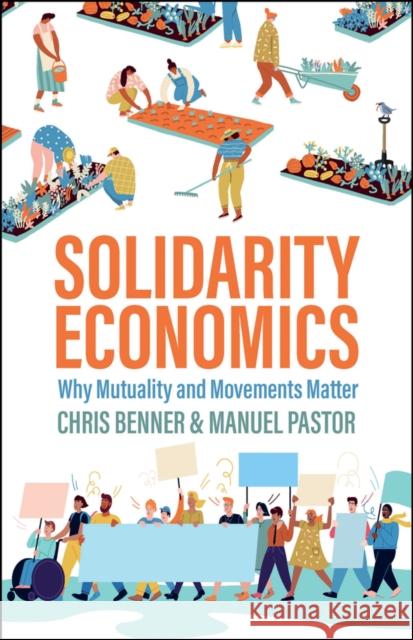Solidarity Economics: Why Mutuality and Movements Matter » książka
topmenu
Solidarity Economics: Why Mutuality and Movements Matter
ISBN-13: 9781509544080 / Angielski / Miękka / 2021 / 208 str.
Solidarity Economics: Why Mutuality and Movements Matter
ISBN-13: 9781509544080 / Angielski / Miękka / 2021 / 208 str.
cena 82,77
(netto: 78,83 VAT: 5%)
Najniższa cena z 30 dni: 81,43
(netto: 78,83 VAT: 5%)
Najniższa cena z 30 dni: 81,43
Termin realizacji zamówienia:
ok. 30 dni roboczych.
ok. 30 dni roboczych.
Darmowa dostawa!
Kategorie:
Kategorie BISAC:
Wydawca:
Polity Press
Język:
Angielski
ISBN-13:
9781509544080
Rok wydania:
2021
Ilość stron:
208
Waga:
0.38 kg
Wymiary:
21.34 x 13.72 x 2.03
Oprawa:
Miękka
Wolumenów:
01
Dodatkowe informacje:
Bibliografia











